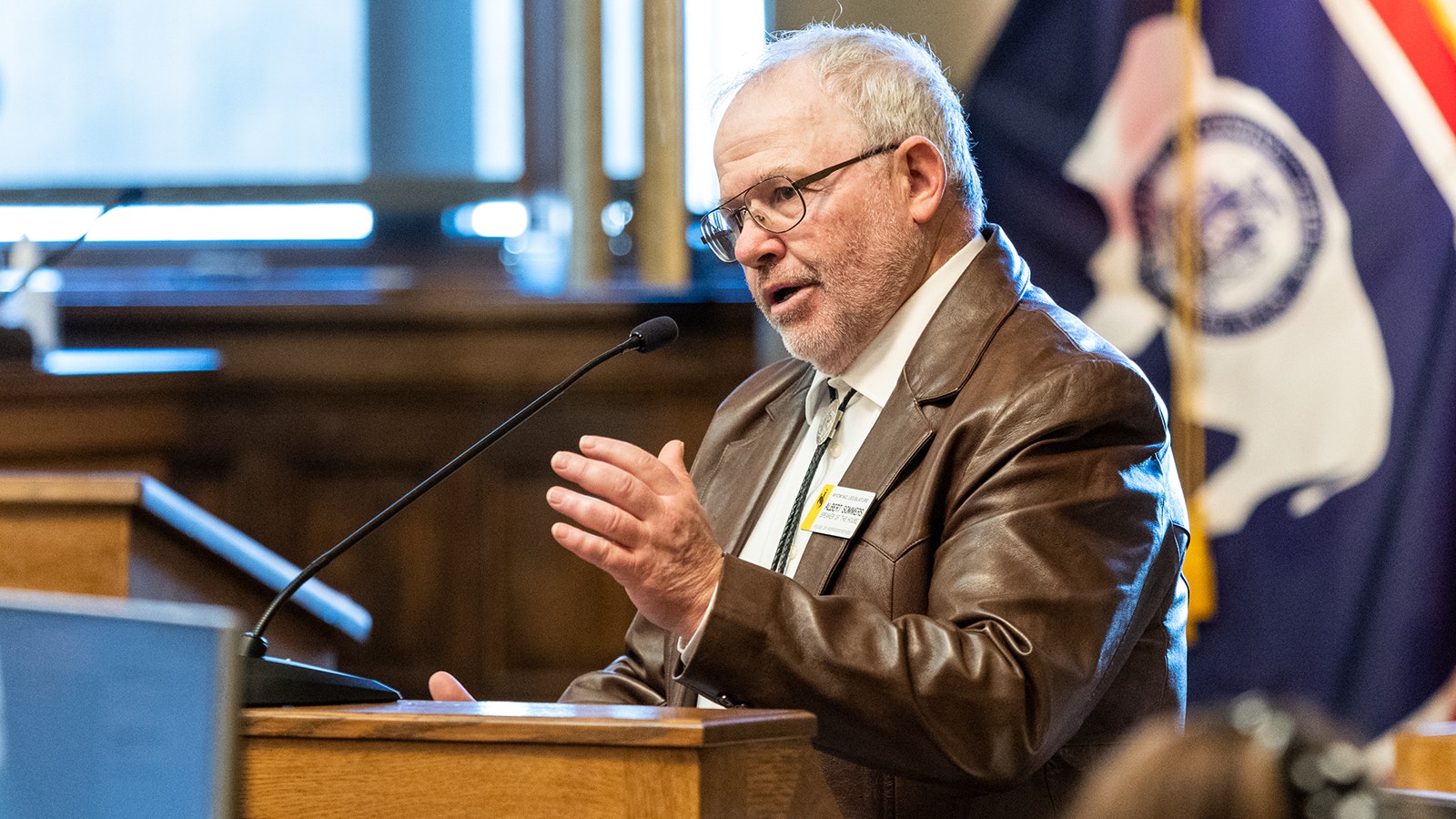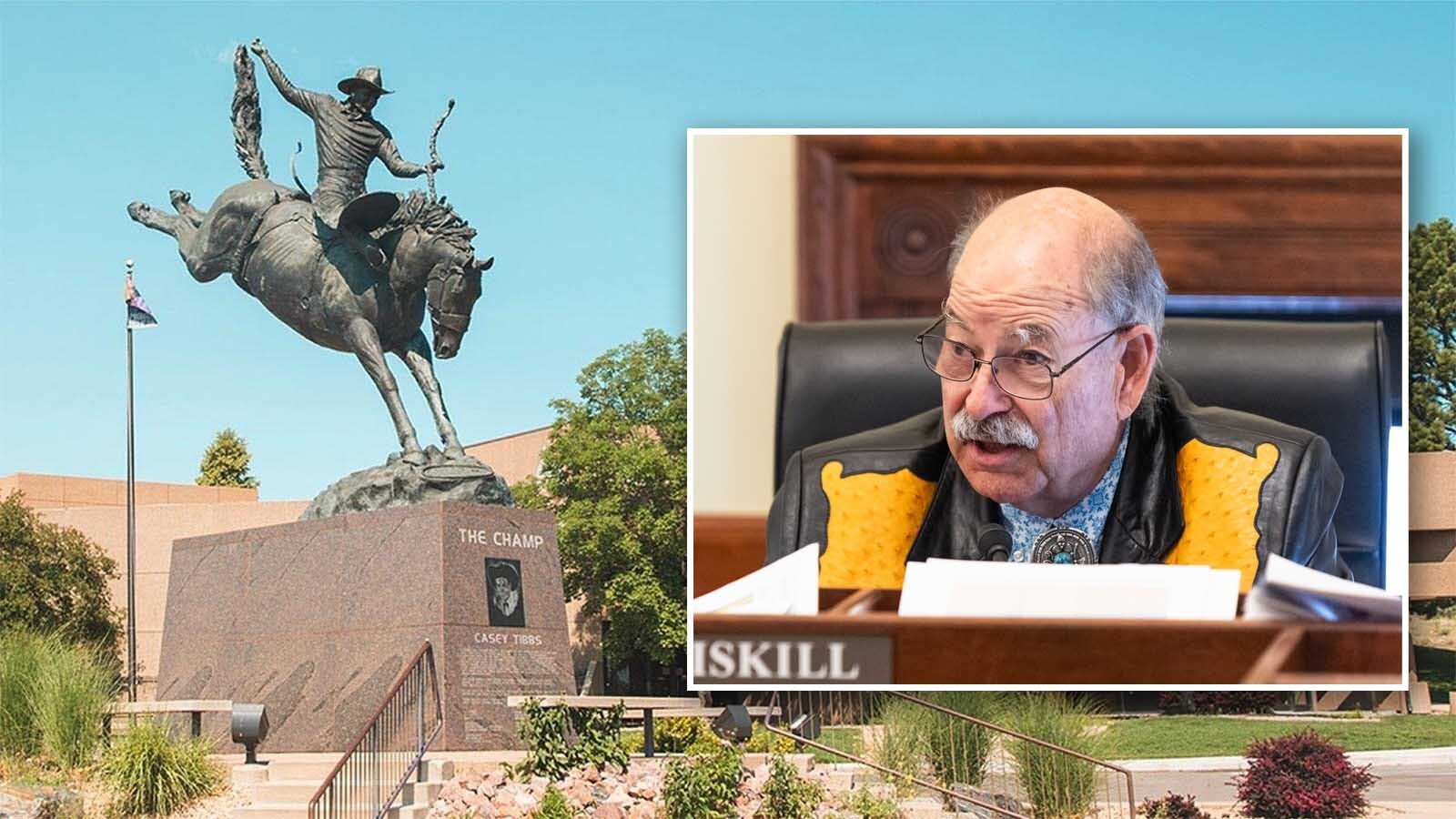The speaker of the Wyoming House of Representatives says he has stifled a few proposed laws for very specific reasons.
But House Speaker Rep. Albert Sommers’ decision to keep Senate File 117, also known as the Parental Rights In Education Act, in his drawer has prompted the most public pushback so far. Among other things, the bill prohibits public schools from teaching about gender identity or sexual orientation.
House leaders can keep certain bills in their “drawer” by not letting them onto the chamber floor for debates and voting action.
Rep. Jeannette Ward, R-Casper, on Tuesday launched a failed effort to recall the bill from Sommers’ desk and get it assigned to the House Agriculture Committee.
Sommers, a Pinedale Republican, told Cowboy State Daily there are two main reasons SF 117 remains in his drawer: It would impede local control and it may not be constitutional.
“Fundamentally, I believe in local control,” said Sommers. “I’ve always fought – regardless of what really the issue is – against taking authority away from local school boards, town councils, county commissions. And in my view that’s what this bill does.”
School Reform
If it became law, SF 117 would forbid public school teachers from teaching sexual orientation and gender identity themes to children from kindergarten through the third grade.
It also would compel school districts to notify parents immediately of any change in students’ “services or monitoring” related to their mental, emotional or physical health.
Sommers said the issues the bill seeks to solve largely are not happening in Wyoming – which is a conclusion the bill’s sponsor Sen. Dan Dockstader, R-Afton, also told Cowboy State Daily when SF 117 first emerged.
“Are we trying to fix a Wyoming problem with a Wyoming solution?” asked Sommers. “I don’t think this bill does it.”
One Topic
The Wyoming Constitution requires that state bills should stick to one subject each. Sommers said he doesn’t believe SF 117 follows that rule.
“The bill has two completely different themes,” he said, noting the provision against teaching sexual lifestyle themes in the first section, and the mandates of parental control in the second.
“I did an oath that I would follow the Constitution,” he said. “So, when I look at bills that are unconstitutional in my opinion, if I believe they’re unconstitutional … I am less likely to bring those bills out.”
Sommers noted that unconstitutional bills that pass the Legislature can be vetoed by the governor or get bound up in the courts system. But he said his oath was his primary reason for looking at bills through a constitutional “lens.”
Chloe’s Law
Sommers also evoked controversy this week by assigning Senate File 144 – aka “Chloe’s Law” – to the House Appropriations Committee and not the House Labor and Health Committee.
The Appropriations Committee changed Chloe’s Law significantly and returned it to the House floor with a “do not pass” recommendation, which puts it at the very end of the House’s hearing schedule with the deadline for hearing bills approaching Monday.
He said that’s because he wanted the best possible version of the bill to emerge from the committee.
There were two bills that addressed child gender-change procedures and treatments in this year’s legislative session. One was Chloe’s Law and the other was Senate File 111.
Senate File 111 remains in Sommers’ drawer. It would have enabled prosecutors to charge with child abuse anyone administering or performing child gender-change treatments.
Chloe’s Law, however, would forbid doctors from performing such treatments by making their licenses revocable for doing so.
‘Seasoned Committee’
Sommers said he chose to let out one of the two laws, and Chloe’s Law is the better bill, but still needed to be vetted by the House’s most experienced delegates.
Appropriations, Sommers said, is a “seasoned committee” containing two attorneys and Rep. Lloyd Larsen, R-Lander, a longtime member who has grappled with health issues and infrastructure throughout his tenure.
Sommers said he didn’t know the committee would return the bill with a “do not pass” recommendation.
“I had no idea how they’d vote on it,” he said. But he also believes the bill will be heard before the deadline.
The Appropriations Committee voted Chloe’s Law down after voicing concerns about whether it fits with a Wyoming Constitution provision promising Wyomingites health care autonomy.
Sommers declined to comment on the ideological intent behind Chloe’s Law, saying he would discuss the merits of the bill once it is on the House floor for debate in its amended form.
‘Not Afraid’
The other reason Sommers chooses the Appropriations Committee for “these really gnarly issues” is because of the delegates’ mental toughness, he said.
“There’s a lot of push out there on not just pleasing the public but (to) intimidate legislators instead of trying to get down and actually work the issue,” said Sommers, adding that Appropriations members “are not afraid – and they’re not afraid to ask the tough questions.”
Another committee to which Sommers likes to send difficult bills, he said, is the House Revenue Committee, which contains an attorney – Rep. Ember Oakley, R-Riverton – and three chairmen of other committees.
Other Bills Stalled
Sommers said there are other bills in his drawer right now, including Senate File 86, which would allow Wyomingites to use their concealed carry permits as voter identification. That’s because House Bill 79, a mirroring bill by Rep. Barry Crago, R-Buffalo, already has passed through the Legislature and become law.
Senate File 143 also is stuck in Sommers’ drawer, he said.
That one would establish a scholarship fund to send some Wyoming students to private schools instead of public.
A nearly identical bill by Rep. Ocean Andrew, R-Laramie, already has failed in the House Education Committee, said Sommers.
“I am not going to bring that bill out from the Senate that’s identical to the one that already failed in my Education Committee,” he said. “It makes no sense to me. So I’ve held that bill.”
Time management, said Sommers, it another concern he has to juggle as House Speaker.
Into The Drawer
Sommers said there are multiple factors that can land a bill in his drawer.
He said those factors are: If the bill does something he fundamentally disagrees with, or is unconstitutional, or matches another bill that has either been defeated or is continuing through the Legislature.





